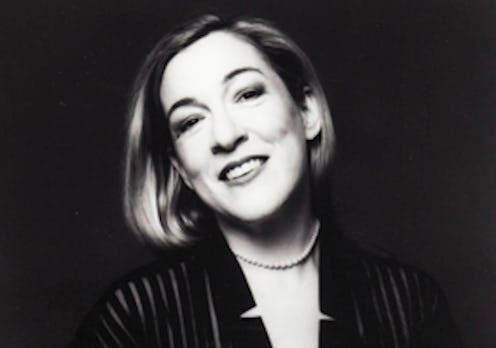Books
'The Book of Heaven' Is a New Feminist Cosmology

In Patricia Storace’s dense The Book of Heaven (Pantheon), the author rewrites the mythological history of the world from the perspective of the world’s first (and often most misunderstood) woman: Eve.
The first section of the book — which is neatly divided up into their smaller “books,” from “The Book of Souraya” to “The Book of Sheba” — traces Eve’s journey from our existing heavens to a new starry sky populated by otherwise unknown constellations. Carried by a star-laden river (away from the ravenous constellation Orion, who turned his attentions to Eve in a most violent fashion) to a wholly new Heaven, Eve encounters the four women who will drive her book, all of whom offer her a golden apple that provides different types of nourishment. (Their first appearances are all in constellation form, yet Storace actually makes quite natural sense of this in the confines of her narrative — no small feat.) Upon ingesting each piece of fruit, Eve falls to Earth, the first human woman.
Following Eve’s tumble from Heaven, the book unfolds out into its four different stories, styled both as standalone myths and narratives that are strengthened by their shared messages. Storace’s world is both richly imagined and rigorously researched. In order to reassemble mythos and belief, one must first be properly versed in the stories and characters they are manipulating into new shapes, and Storace certainly knows her mythology, cosmology, and astronomy.
She also knows her Old Testament, and the author uses cleverly recrafted versions of both the story of Job’s wife and that of Abraham’s wife as two of her essential characters (and rest assured, a working knowledge of the Bible is in no way a prerequisite for enjoying The Book of Heaven).
Storace’s novel is relentlessly organized, as each book also includes a corresponding “new” constellation (such as The Lovers’ Cluster, which fills this fresh Heaven with all the light it needs) and a page or so of proverbs. The Book of Heaven is populated by women who must transcend various tragedies, from unhappy marriages to indentured servitude, to emerge as the kind of heroines that could inspire an alternate Heaven to honor them.
Storace’s heroines are prone to great unhappiness and isolation on Earth (it’s nearly impossible to determine which character suffers the most, but Rain’s tale of forced prostitution and pain is a wrenching frontrunner), making her new myths feel relatively timeless. Not all attempts at mythopoeia in modern fiction are successful, but Storace’s The Book of Heaven is a standout in the genre.
The book is Storace’s first foray into novel-writing, and her background in poetry, travel memoirs (Dinner with Persephone), and even children’s books (Sugar Cane) shines through on every page. The Book of Heaven's language is lyrical, and emotive. It's initially hard to crack, but Storace’s storytelling ability soon renders it both enjoyable and entertaining. Her knack for writing biblically influenced tales and proverbs and original narrative stories is impressive, and Storace provides something satisfying for every reader.
With The Book of Heaven, Patricia Storace has created a fully realized and imagined feminist flipside to the myths and proverbs that have long permeated literary traditions, one that serves as both a counterpoint to established stories and its own uniquely inspiring narrative.